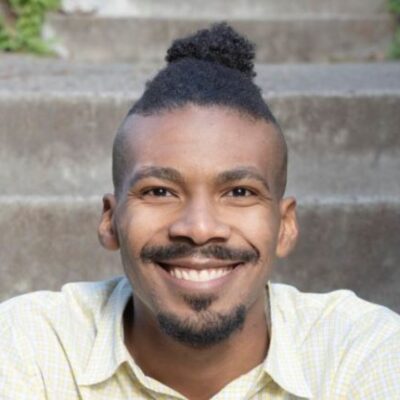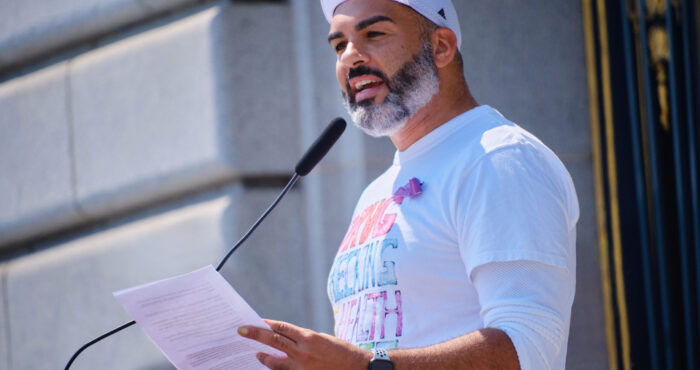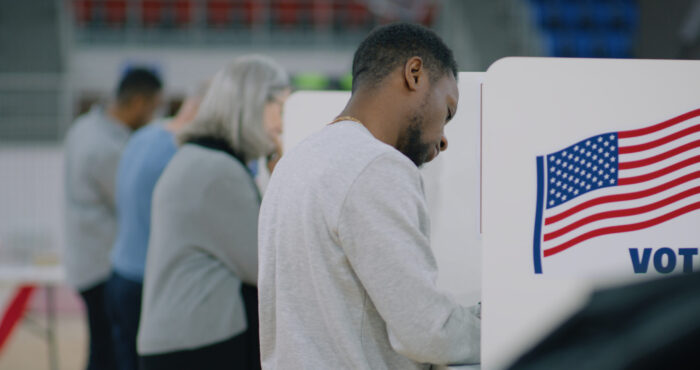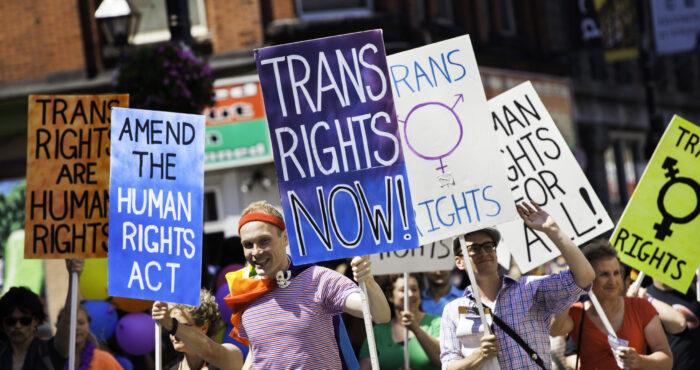Black, gay, and climate activist. These identities form who I am. With time and practice, I become more proficient in seeing all of the ways in which these identities work in concert to focus the lens I see myself and the world through.
When I came of age in the early 2000s, I couldn’t unsee the alarming images of habitat loss and shrinking ice caps that Google Earth made so clearly accessible. It was like sitting at my clunky desktop with dial-up internet summoning the sounds of the devil while viewing our blue, green, and cloudy planet from the perspective of a time-traveling astronaut. But what would the future hold? That was my first question. Then I added, what does that future specifically mean for Black folks? Queer folks? And all of the folks who are already marginalized by our society?
Study after study has documented how marginalized communities will be the most impacted by climate change. The social context of age, gender, race, poverty, education, and health all interact to influence who will suffer the most from increasing global temperatures.
The fight for a more sustainable world dovetails with the fight for equity among communities living with HIV and AIDS. We can’t forget to layer-in the specific HIV and AIDS context to climate change.
There are many examples of how climate change intersects with health. For instance, changes in our environments brought about by climate change can exacerbate asthma, a respiratory illness that’s found at higher rates among those living with HIV and AIDS. Driven by a changing climate, asthma has become a leading chronic disease in the United States. The rise in temperatures and humidity offer a hospitable environment for mold and pollen to thrive, while forest fires cause levels of air pollutants like ozone and particulate matter to increase. These changes will only exacerbate difficult environmental conditions for those struggling with asthma.
Asthma rates among those living with HIV and AIDS could be double that of the general population, according to a report published in the Journal of Allergy and Clinical Immunology. The very air we breathe becomes a battleground as climate change fosters the growth of allergens–which people living with HIV and AIDS may be more affected by.
The impact of asthma goes beyond physical symptoms. Asthma leads to increased healthcare costs, missed workdays, and decreased productivity. These economic costs can be devastating, especially for individuals with less financial security who may already struggle to afford the medications and treatments necessary to manage any pre-existing health conditions.
And what may give those with pre-existing health conditions even more concern is how scientists have linked climate change to the threat of more disease. “We know that 58% of infectious diseases confronted by humanity worldwide have been at some point aggravated by climatic hazards,” one report published in Nature said. The extent of human vulnerability to pathogenic diseases affected by climate change has so much more to be explored.
The intersection between climate change and HIV and AIDS equity becomes even more apparent when we consider how communities of color, who experience higher rates of HIV and AIDS, are also most at risk of being affected by climate change. EPA recently published a ground-breaking report that analyzed environmental justice and social factors and found that Black folks and Latinx folks in the U.S. are disproportionately affected by climate change, and more likely to experience changes in air quality and extreme temperature, disruptions to weather-exposed workers, and flooding threats to property.
“When life is already hard for marginalized communities, we don’t need anything to exacerbate these conditions,” Vanessa Raditz (they/them) said, co-founder of the Queer Eco-Justice Project and graduate student at The University of Georgia.
As evidenced by the yearly alarming reports from the United National Intergovernmental Panel on Climate Change, action is necessary and denying this reality creates direct harm. Perhaps science doesn’t matter to folks like Ann Coulter who spew homophobic rhetoric such as, “I don’t believe Hurricane Harvey is God’s punishment for Houston electing a lesbian mayor. But that is more credible than ‘climate change.’”
Despite whether people choose to “believe it” or not, the impact it’s having on communities is measurable.
Climate change will surface engaging questions about how those living with HIV and AIDS will be affected by the crisis, said Raditz. “How does violence to the land also mean violence to our bodies? How have queer and trans folks historically been able to access medical systems, when these systems don’t serve us? What resources will be available to help them? What resources won’t be available to help them?”
Complexity riddles the solution, and any answer requires thoughtful examination of how our human society is constructed. Skipping out on the plastic bags, investing in community agriculture, reducing consumption of energy and water, and all of the hundreds of ways to “go green” matter, but we also need to advocate for systemic, institutional change to build a more sustainable, equitable world. When we do that we also protect those living with HIV and AIDS, and everyone else that’s been made vulnerable.
All of the existing data reminds us of the urgent need to consider the interconnectedness of public health and climate movements and respond accordingly to address health disparities and promote resilience in vulnerable communities. The Astrea Foundation recently launched a call for proposals relating to Climate Justice for queer, trans, and intersex communities in the U.S. More foundations can take a page from the Astrea Foundation’s book and open up resources to address the critical gap between queer communities and climate change.
Organizations such as @QueersforClimateJustice, Southerners on New Ground, OUT for Sustainability, Our Climate Voices, and Interlocking Roots stand at the crossroads of so many social, environmental, and health issues. “They need our support,” Vanessa says, calling us to action. Each of these organizations offer resources, video contents, and potential speakers and coaches to support us in developing a climate justice movement that’s fully inclusive.










